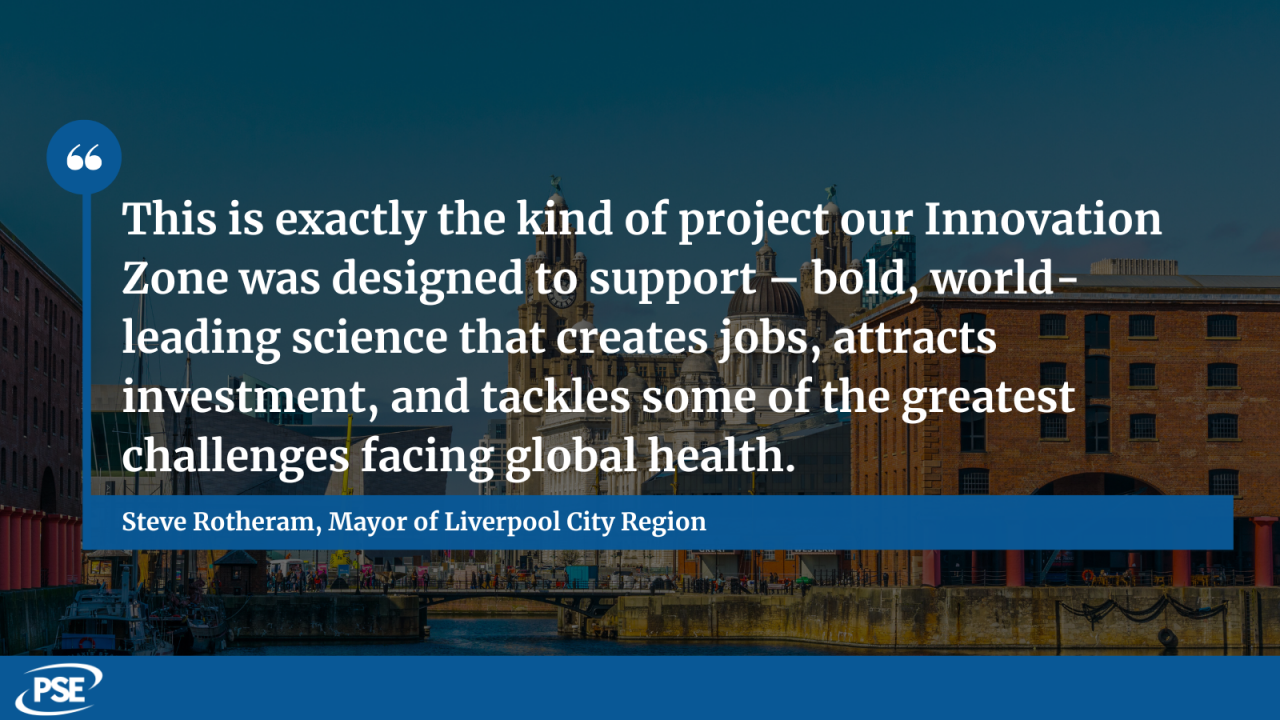Liverpool City Region is set to become a global powerhouse in tackling deadly diseases and improving wellbeing.
Over £1 million of Life Sciences Innovation Zone funding will support the creation of a Microbiome and Infectious Disease Innovation Hub (MaID), leveraging the University of Liverpool’s expertise in this rapidly expanding field.
Microbiomes, communities of microorganisms living throughout the human body, play crucial roles in digestion, metabolism, mucus production, and defence against harmful organisms. As understanding of microbiomes grows, their healthcare potential increases, offering new approaches for tackling cancer, mental health disorders, inflammatory bowel disease, and antimicrobial resistance.
The UK, currently the world’s third-largest microbiome researcher, faces challenges in turning discoveries into real-world impact within a global market expected to be worth billions. Led by the University of Liverpool and technology innovation centre CPI, MaID aims to establish Liverpool City Region as the premier location for microbiome innovation, providing vital support to businesses in the field.
Steve Rotheram, Mayor of the Liverpool City Region, said:
“This is exactly the kind of project our Innovation Zone was designed to support – bold, world-leading science that creates jobs, attracts investment, and tackles some of the greatest challenges facing global health.
“The Liverpool City Region has the talent, expertise and ambition to lead the way in microbiome innovation, and the MaID hub is a fantastic example of how we’re turning that potential into progress.
“By backing cutting-edge research and helping businesses scale, we’re putting our region firmly on the map as a global force in health and life sciences.”

The University of Liverpool and CPI have signed a Memorandum of Understanding (MoU) to progress the project, offering varying levels of support to 60 innovative businesses over three years. This includes consultancy, lab access, experimental design, data analysis, and regulatory and commercial advice. MaID will leverage CPI’s facilities and expertise to provide end-to-end support for businesses seeking to de-risk and accelerate microbiome and phage therapeutics to market.
Building on the city region’s strengths in microbiome innovation, MaID is among the first of 20 Life Sciences Innovation Zone projects expected to create 8,000 new jobs and attract up to £800 million investment over the next decade. The Liverpool City Region Life Sciences Innovation Zone Programme is part of the Government’s national Investment Zone Programme, positioning the city region as a powerhouse for health and life sciences innovation.
Image credit: iStock



















